Welcome to the second post in the Ultimate Guide to Homeschooling Styles series! Click here to view the rest of the series.
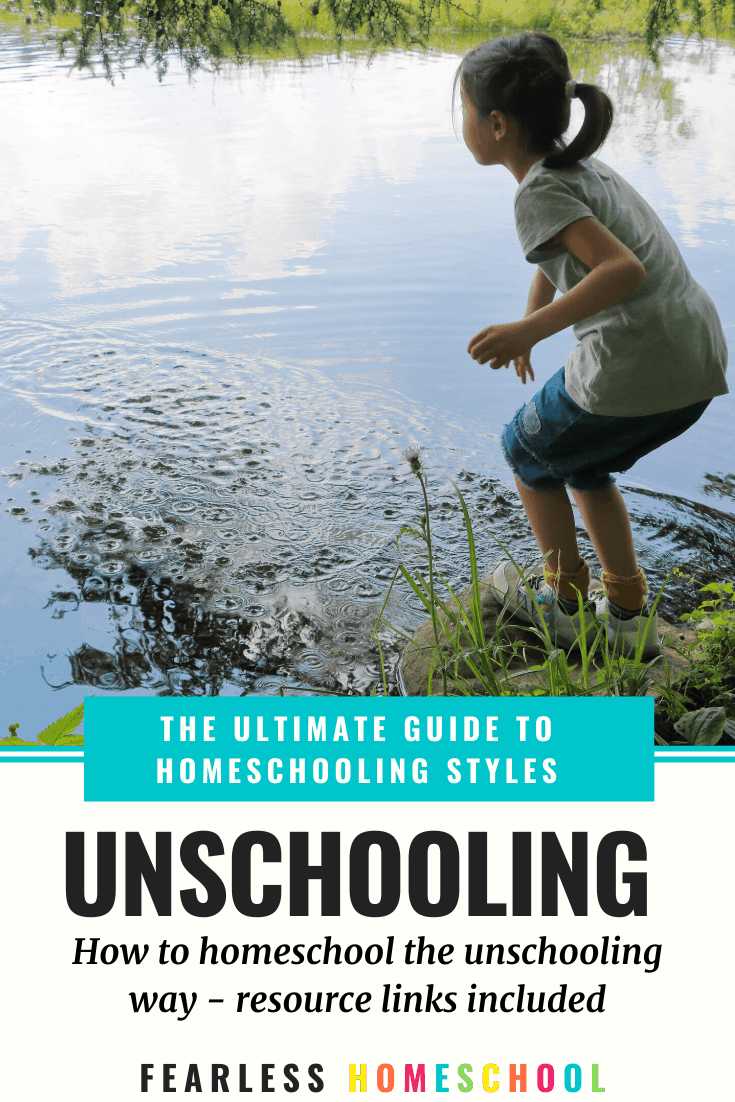
The term unschooling was brought into use by John Holt, who defined unschooling as, “allowing children as much freedom to learn in the world as their parents can comfortably bear”. Unschooling may also be called natural learning, child-led learning, interest-led learning, or self-directed learning.
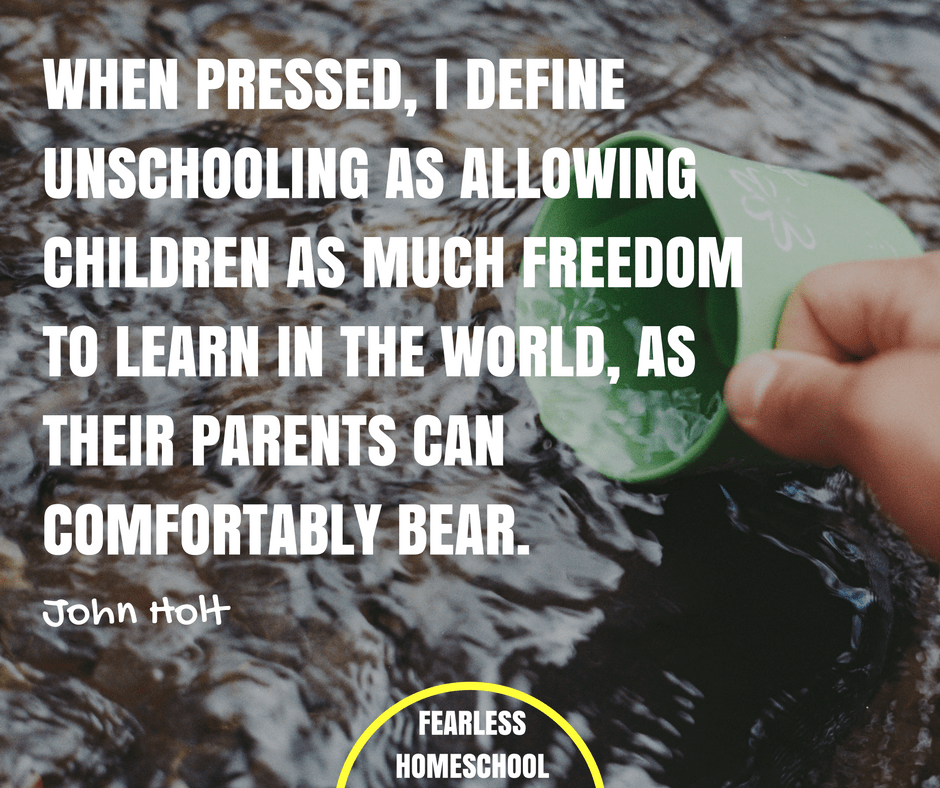
Teach Your Own: The John Holt Book of Homeschooling, John Holt | Kindle
The problem is that unschoolers generally like to do things their own way, so coming up with a concise, all-inclusive definition is very difficult!
The premise is that children have a natural love of learning. Anyone who has spent time with a toddler knows that! Unschoolers seek to maintain and nurture this natural love. Instead of deciding what ‘should’ be learnt at a certain age, unschooled children decide what they would like to learn, and when. This way, the natural love of learning stays alive. The parent’s role is to facilitate and support this learning by providing an educationally rich environment, plenty of child-centred learning materials, and lots of time spent assisting the child in whatever ways they need. In this way, the process of learning is the focus, not the content.
Life itself is learning, indistinguishable from school. When you think about it, this is how we learn as adults if we are curious. We have interests, we work out how to learn about it, using whatever resources we’re able to access, and we follow our own motivation and reasons rather than someone else’s. Why not begin in childhood?
Critics say that unschooling is neglect, that children will not learn unless made to. But unschooling involves a large investment of time and effort on behalf of the parent, who assists the child in whatever ways they require-finding resources, mindful strewing, teaching skills needed (such as note taking, sounding out words, or how to use the camera), and taking them places. Ignoring and neglecting your children is NOT unschooling – that’s unparenting or nonschooling.
Unschooling is not the lazy option.
Believing children will not learn without force and coercion is a sad result of the modern school system, where children must be made to learn things they aren’t interested in or ready for, and as a predictable result display resistance and apathy. The typical unschooled child is voracious and insatiable when it comes to following their interests, and is filled with curiosity and excitement at the world around them.
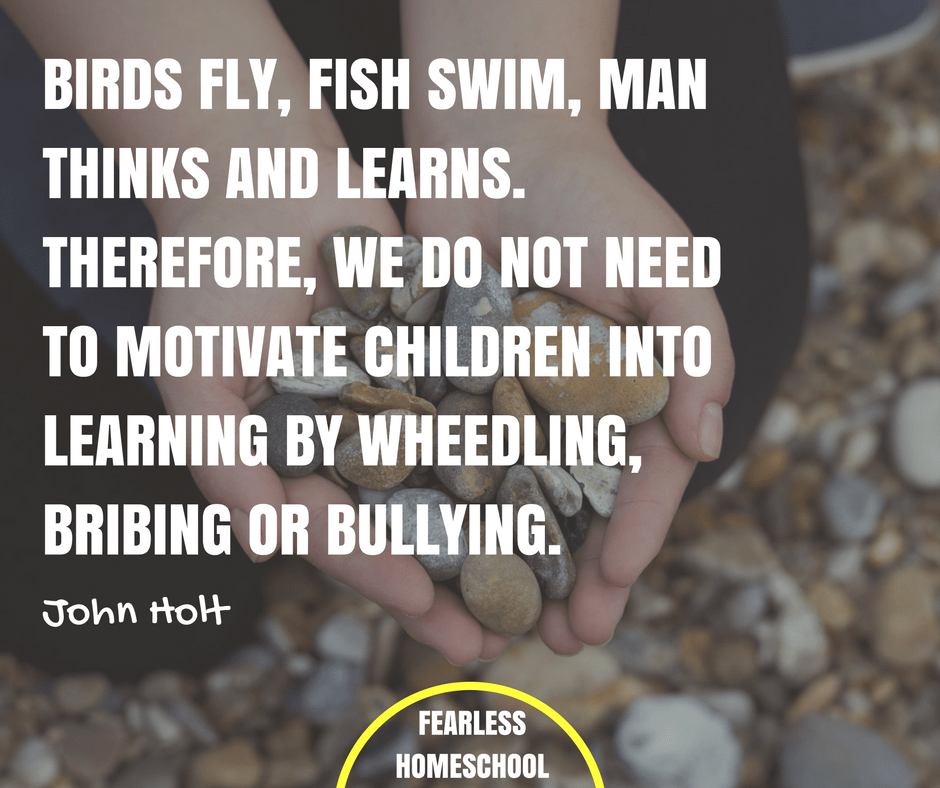
How Children Learn, John Holt | Kindle
Radical unschooling
As unschooling became more mainstream, and somewhat diluted, radical unschooling arose. In radical unschooling, unschooling extends beyond education and into all areas. The child is in complete control of their life – they decide what they will eat and when they’ll eat it, what clothing is appropriate, and what time they will go to bed. The parent does not hold any activity as ‘worthwhile’ or ‘not worthwhile’, so there is no push to learn maths or to put a limit on video game playing. Parents have full trust in their child to do what they need to do, to live their life in the way that is best to them, and don’t believe that they have the right to interfere or place rules and restrictions on that. However, there is a general agreement that parents will still facilitate their child’s learning by providing resources and opportunities.
Just like unschooling, radical unschooling is NOT neglect, unparenting, or lazy. Instead, it is placing full trust and respect in your children, and truly partnering with them.
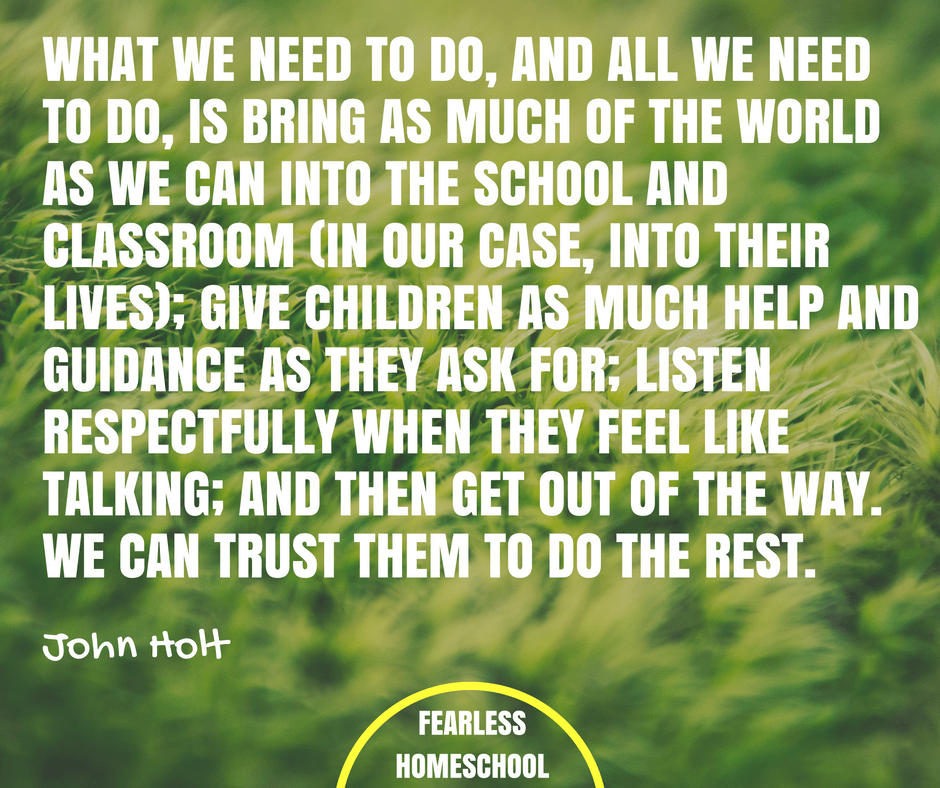
How Children Learn, John Holt | Kindle
The Good Points
- Unschooling instils lifelong learning as a habit
- Children learn an astonishing amount, very quickly, when learning is interest-led
- Children develop their own sense of discipline, which is needed to dig deeply into topics and learn the not-so-interesting parts of them
- It can create an extremely close relationship between parents and children, as there is no coercion, rules or authoritarian/rebellious behaviour to create conflict
- It can also create strong bonds between siblings, as they work together in a non-competitive environment, with no divisions between age and ability
- Structuring your own learning and setting your own schedule are essential skills for further education, which school does not prepare students for
The Not-So-Good Points
- There are concerns as to whether children can truly regulate things which are addictive eg. sugar, video games
- Some children, such as those with special needs, may not learn things intuitively, and may need regular, repetitive teaching of core skills
- Sometimes children may need the parent to step in and impose rules or restrictions. This may be as simple as, ‘you MUST brush your teeth’, or as complicated as, ‘no, you may NOT hang out with the criminal element’
- If a child is expected to teach themselves everything, it can be akin to them reinventing the wheel. Avoiding phonics instruction because you’d like your child to learn to read ‘naturally’ may simply be creating more work and frustration for them
- It can be more difficult to obtain registration (but is still possible in Australia)
- Unschooling is usually not suitable if you plan to send your child to school in the future, unless you plan to have an intensive period beforehand where you ensure they’re at grade-level in all areas
More Resources
Interested in unschooling? Take a look at these resources.
Read an unschooling day in the life
Read another unschooling day in the life – on a boat!
The Unschooling Handbook: How to Use the Whole World as Your Child’s Classroom – Mary Griffith.
A must-read for new homeschoolers.
Teach Your Own: The John Holt Book of Homeschooling, John Holt
How Children Learn, John Holt
Dumbing Us Down: The Hidden Curriculum of Compulsory Schooling – John Taylor Gatto
The Unschooling Unmanual – Nanda Van Gestel
Sandra Dodd’s Big Book of Unschooling
100 Homeschool Strewing Ideas to foster natural learning
And take a look at my Unschooling board on Pinterest to discover fantastic resources that will help you get started with unschooling.
Follow Kelly | Fearless Homeschool’s board Unschooling on Pinterest.
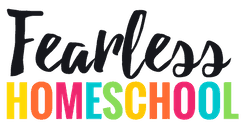
Rember this post about unschooling?http://theantirat.blogspot.com.au/2014/05/leaving-unschooling-behind.html?m=1
I do! And it still stands true for us-we’re all much more content now we’ve introduced structured lessons for the things they want to learn. That’s why I say we’re eclectic-classical-unschoolers now-we incorporate a lot of classical resources with a focus on base skills (like grammar), we DIY unit studies on things that interest us, and it’s all very child-led, with lots of unstructured time and nurturing of individual interests. I think most people are eclectic, really, and see all the styles as a smorgasbord to pick and choose from to suit.